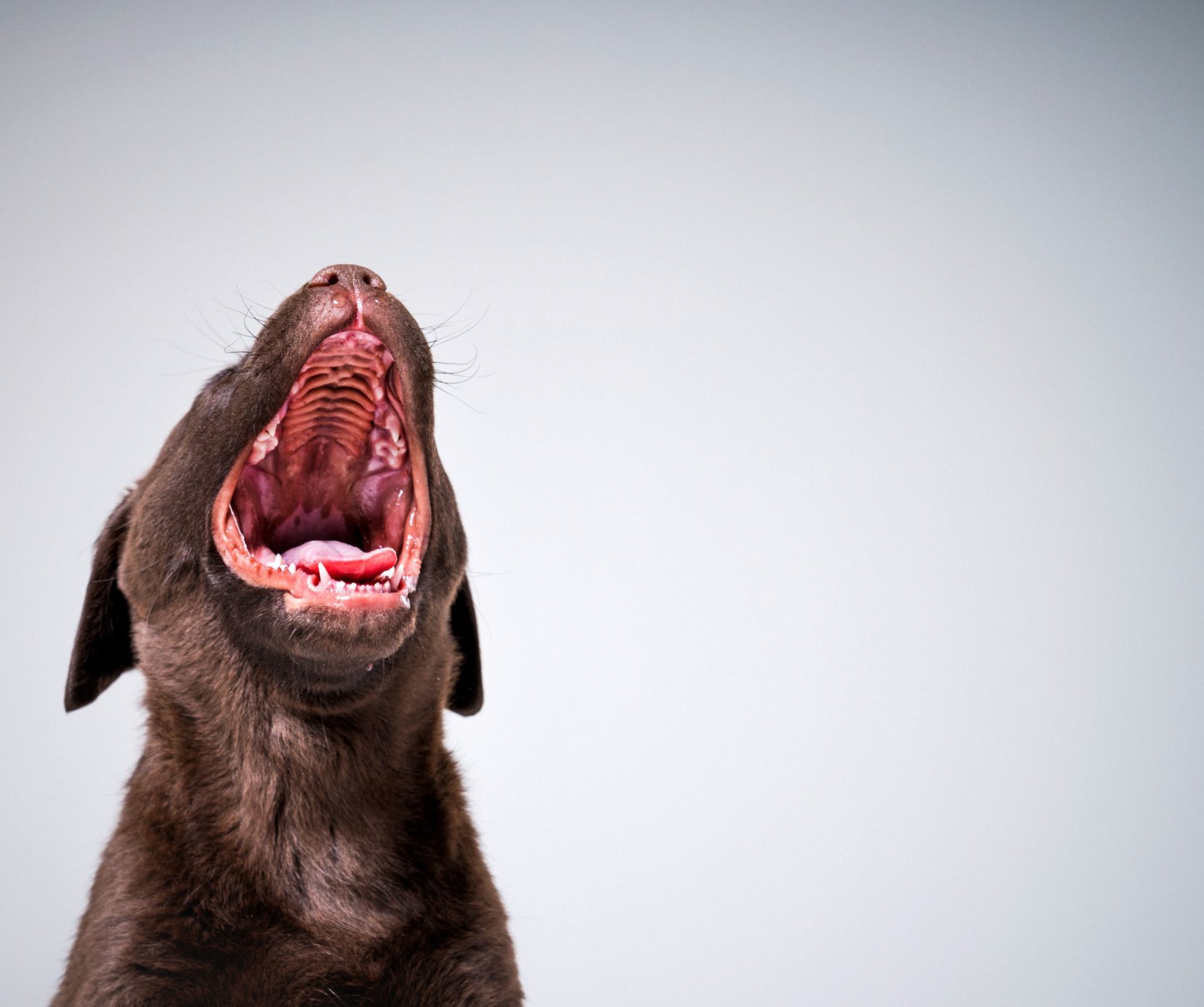
Is Fido’s breath unbearable? Is Fluffy shying away from crunchy food? These could be signs that your beloved pets have issues with their teeth and gums. Broken teeth, sore gums, and periodontal disease are just a few causes of oral irritation and disease.
Annual Checkups Include Dental Examinations
At every wellness visit, your veterinarian will examine your pet’s teeth and gums. We can easily see tartar buildup above the gum line, but is there tartar trouble building below? Signs of oral health issues include:
- Red or swollen gums
- Bad breath
- Tartar buildup
- Decaying, loose, chipped, or broken teeth
Why Pet Dental Care Is Important to Your Pet’s Health
Poor dental hygiene can be at the root of systemic disease and even death in pets, which is why we put such a strong focus on pet dental care. Your pet’s immune system responds to bacteria with inflammation that brings heat to fight the infection. Inflammation may push bacteria into the bloodstream, potentially damaging the heart and liver.
Regular tooth and gum care at home can prevent most oral infections!
Common Dental Problems for Dogs and Cats
Cats and dogs are as vulnerable as their humans to tooth and gum problems. We share the most common dental issues:
- Periodontal disease
- Gingivitis
- Broken teeth
- Abscess or other infections
Bad Breath in Dogs—Causes and Cures
Your dog’s breath stinks, and you think the odor is from something they ate. It’s more likely that the awful smell is periodontal disease. The cure is simple: brush your pet’s teeth! If the odor persists, see your veterinarian for a dental exam. There could be far more serious problems that need medical intervention.
Cleaning Your Pet’s Teeth at Home
Your older, untrained pets will get used to you cleaning their teeth, maybe. Start them young, and they’ll be less resistant to daily teeth cleanings.
- Use a pet-safe, fluoride-free toothpaste
- Brush with a flexible pet toothbrush or finger brush
There are numerous safe and effective alternatives to brushing that are commercially available for both cats and dogs. Ask us about recommended chews, water additives, sprays, toothpaste, and toothbrushes designed especially for pet dental care at home.
Give a Dog a Bone or Try a Dental Chew
For cats and dogs, both bones and dental chews help reduce plaque buildup.
- Gnawing on a bone or a dental chew will scrape away plaque before it hardens to tartar
- The hard surface of an animal bone may knock free tartar from teeth
- If you choose to give your cat or dog a bone, know which bones are safe and always serve them raw
- Stay with your animal when they are chewing on a bone in case they choke on small pieces
- If possible, offer your pets vet-approved dental chews instead of bones
At Sky Canyon Animal Hospital, we encourage annual dental checkups along with your pet’s wellness visit. Early detection of tooth issues or gum disease means early treatment. We want your pet to live a happy and healthy life. Make regular dental care an important part of your pet’s wellness plan!

